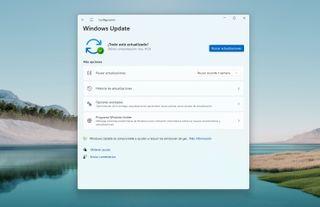Windows 11 update delivers a fix for broken VPNs – but also sees adverts infiltrate the Start menu
Microsoft has recently released an update for its latest operating system, Windows 11, which has brought much-needed fixes for broken virtual private networks (VPNs). However, along with this fix, users have discovered an unwelcome addition to the Start menu – advertisements.
Virtual private networks (VPNs) have become increasingly popular in recent years, enabling individuals to secure their internet connections and protect their privacy while browsing the web. However, some Windows 11 users experienced issues with their VPNs not connecting properly after the operating system’s initial release.
With the new update, Windows 11 users can finally breathe a sigh of relief as Microsoft addresses these VPN connectivity problems. The fix ensures that VPNs can establish stable and reliable connections, allowing users to browse the internet securely and privately once again.
While the VPN fix is undoubtedly a step in the right direction, some users have noticed another change that has raised concerns. Advertisements have started infiltrating the Start menu, which is known for its clean and uncluttered design. This addition has stirred a debate among Windows 11 users, with many expressing their frustration and disappointment with Microsoft’s decision.
The Start menu has always been a central location for launching applications and accessing important system functions. Its simplicity and straightforwardness have been appreciated by users worldwide. However, with the latest update, Microsoft seems to have taken a divergent approach by incorporating sponsored recommendations in the Start menu. These ads recommend various applications and services, potentially drawing attention away from the user’s desired applications and cluttering the experience.
Critics argue that the inclusion of ads in the Start menu contradicts the user-friendly philosophy that Microsoft has upheld throughout its history. Some argue that Windows 11 is a paid product, and users should not be subjected to advertising within the operating system itself. They question whether Microsoft is prioritizing monetization strategies over user experience.
Microsoft, however, defends its decision, stating that the ads can be useful in helping users discover new apps and services that may be of interest to them. They claim that the advertisements are not intrusive and are based on anonymized data, respecting user privacy.
Whether these ads will become an integral part of the Windows 11 experience or if they are merely an experimental addition remains to be seen. However, the mixed reactions from users emphasize the importance of a balance between monetization and user experience.
In an era where online advertisements are ubiquitous, users have grown accustomed to encountering ads across various platforms. Yet, the operating system has traditionally been perceived as a safe haven from such distractions. Users expect an operating system to facilitate their tasks efficiently and smoothly, without interruptions from advertisements.
As Windows 11 continues to evolve and adapt to user feedback, Microsoft will likely continue refining its approach to ads in the Start menu. Balancing the revenue generation through ads with user satisfaction will be critical to ensure that Windows 11 remains a popular choice among users.
In the end, the recent Windows 11 update brings positive changes with the VPN fix, emphasizing Microsoft’s commitment to addressing user concerns promptly. However, the introduction of advertisements in the Start menu raises questions about the direction the company is taking. As users continue to provide feedback, it is vital for Microsoft to find the right balance between monetization and providing a clean, user-friendly experience.
Hey Subscribe to our newsletter for more articles like this directly to your email.
